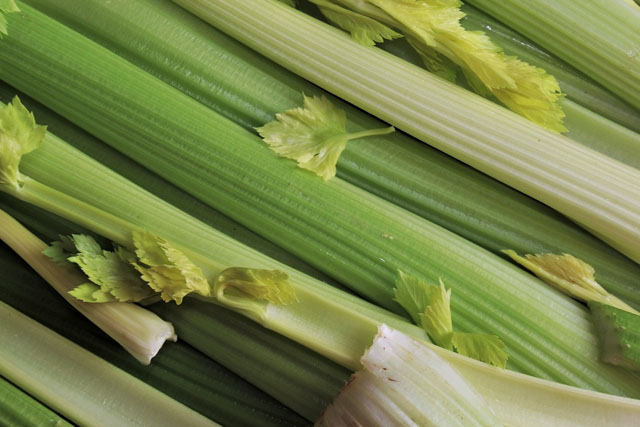



Celery is a popular vegetable known for its crunchy texture and refreshing taste. But can dogs eat celery? The answer is yes, dogs can safely consume celery in moderation. In fact, celery can provide several health benefits for your furry friend.
One of the main benefits of celery is its high water content. This can be especially beneficial for dogs who may not drink enough water throughout the day. By adding celery to their diet, you can help keep them hydrated and prevent issues such as dehydration and urinary tract infections.
Celery is also low in calories, making it a great snack option for dogs who are watching their weight. It can be a healthy alternative to high-calorie treats and can help prevent obesity, which is a common issue among dogs.
Furthermore, celery is rich in vitamins and minerals. It contains vitamins A, C, and K, as well as potassium and folate. These nutrients are essential for your dog's overall health and can support their immune system, promote healthy digestion, and contribute to strong bones and teeth.
Additionally, celery is a good source of dietary fiber. Fiber is important for maintaining a healthy digestive system and can help prevent constipation in dogs. It can also aid in weight management by promoting a feeling of fullness.
While celery can be a healthy addition to your dog's diet, there are a few potential risks to be aware of. One of the main concerns is the risk of choking. Celery has a fibrous texture, and if not cut into small, manageable pieces, it can pose a choking hazard, especially for small dogs or those who tend to gulp their food.
Another risk is the presence of pesticides or herbicides on the celery. It's important to choose organic celery whenever possible to minimize the exposure to harmful chemicals. Washing the celery thoroughly before feeding it to your dog can also help remove any residue.
Lastly, some dogs may have an allergic reaction to celery. Signs of an allergic reaction can include itching, swelling, vomiting, or diarrhea. If you notice any of these symptoms after feeding your dog celery, it's best to consult with your veterinarian.
To safely feed celery to your dog, it's important to take a few precautions. First, always wash the celery thoroughly to remove any dirt or pesticides. Then, cut the celery into small, bite-sized pieces to prevent choking.
It's also important to introduce celery gradually into your dog's diet. Start with small amounts and monitor their reaction. If they tolerate it well, you can gradually increase the amount over time.
Remember that celery should be given as a treat or snack and not as a substitute for a balanced diet. It should only make up a small portion of your dog's overall food intake.
If you're looking to add more vegetables to your dog's diet, there are several other options that are safe and beneficial for them. Some of these include:
1. Carrots: Carrots are low in calories and high in vitamins and fiber. They can be given raw or cooked and make a great crunchy snack for dogs.
2. Green beans: Green beans are a good source of fiber and can help with weight management. They can be given fresh, steamed, or even frozen as a refreshing treat.
3. Sweet potatoes: Sweet potatoes are packed with vitamins and minerals, including vitamin A and potassium. They can be cooked and served as a healthy side dish or mashed and mixed with your dog's regular food.
4. Pumpkin: Pumpkin is rich in fiber and can help regulate digestion. It can be served cooked or canned (without added sugars or spices) and can be a tasty addition to your dog's meals.
5. Peas: Peas are a good source of protein and fiber. They can be given fresh or frozen and make a great addition to your dog's diet.
Remember to always introduce new vegetables gradually and monitor your dog's reaction. If you notice any digestive upset or allergic symptoms, discontinue feeding that particular vegetable and consult with your veterinarian.
In conclusion, celery can be a safe and healthy addition to your dog's diet when fed in moderation. It provides several benefits, including hydration, vitamins, minerals, and fiber. However, it's important to be aware of the potential risks, such as choking, pesticide exposure, and allergies.
By following the proper precautions, such as washing the celery, cutting it into small pieces, and introducing it gradually, you can safely incorporate celery into your dog's diet. Remember to always consult with your veterinarian before making any significant changes to your dog's diet or if you have any concerns about their health or dietary needs.
So, the next time you're enjoying a crunchy celery snack, feel free to share a small piece with your furry friend, knowing that you're providing them with a healthy and tasty treat.
Related posts